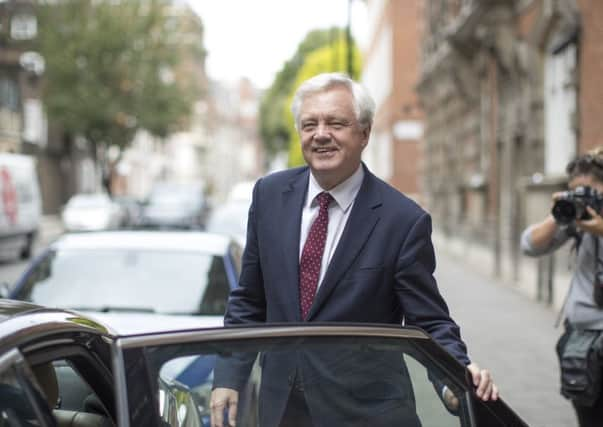Leader comment: Time is ticking '“ and ticking '“ on Brexit


UK Brexit Secretary David Davis has arrived in Brussels criticising the EU’s terms for talks, seeking an end to its strict timetable and for European negotiators to show “flexibility and imagination”. But EU officials speak of a “big gap”, with chief negotiator Michel Barnier insisting that the focus remains on his priority issues: citizens’ rights, the Irish border and, of course, the Brexit divorce bill. Until these are settled, the EU will not accede to UK requests for current talks to include a possible post-Brexit relationship.
Little as yet seems to have been settled on the remit of the European Court of Justice, with EU officials insisting that it is the only way to protect and enforce the rights of EU citizens living in the UK after Brexit, while the UK accuses Mr Barnier of “massively over-egging” his demands for money. Amid growing signs of deadlock, British and German business groups have issued a plea to politicians to put economic interests first.
Advertisement
Hide AdAdvertisement
Hide AdIf all this is symptomatic of how future “negotiations” proceed, the talks may acquire all the complexity, confusion and bitterness of the post-First World War Treaty of Versailles – only with little prospect of any settled agreement by the 2019 deadline. By that time, there is every risk of voter patience being exhausted, with opinion sharply divided between those agreeing to continue Single Market and Customs Union membership for an indefinite period, and those urging the UK government to terminate the fruitless discussions and leave without a deal.
Meanwhile, the hurdles facing Prime Minister Theresa May are becoming formidable. Labour policy on Brexit has shifted to support remaining in the EU single market and customs union for up to four years. And the Scottish Government has called on UK ministers to finally rule out the “unthinkable” prospect of a “no deal” exit from the EU.
This would make the task of steering Brexit through parliament even more difficult. The clock ticks on. Unless there are clear signs of agreement on at least one of the many fronts the government is fighting, the patience of parliament, business and voters may wear out.